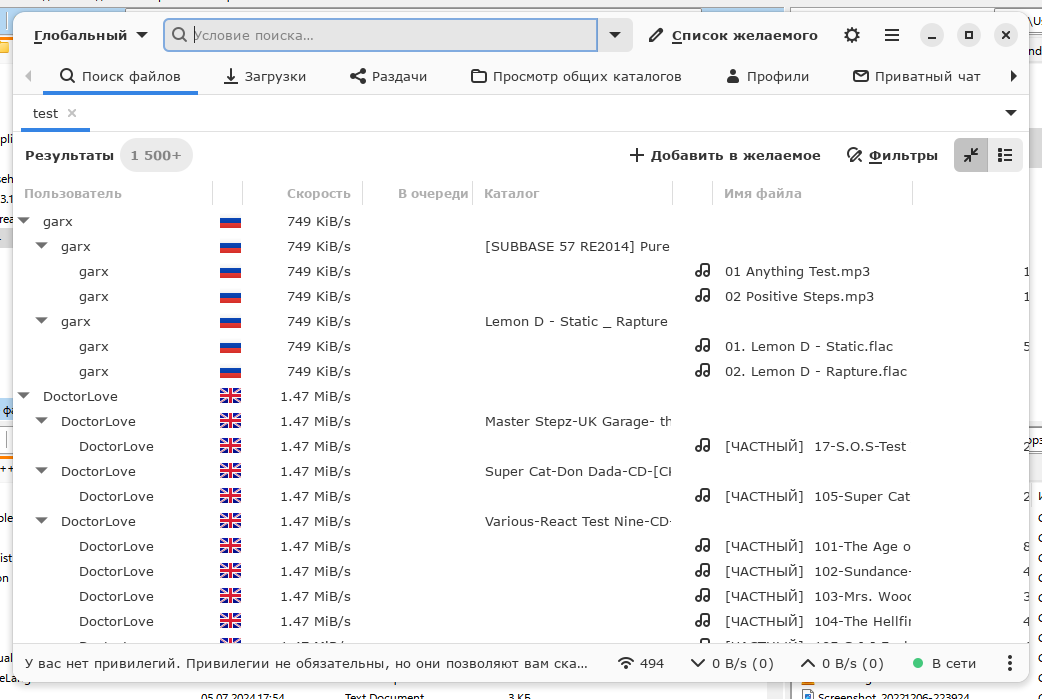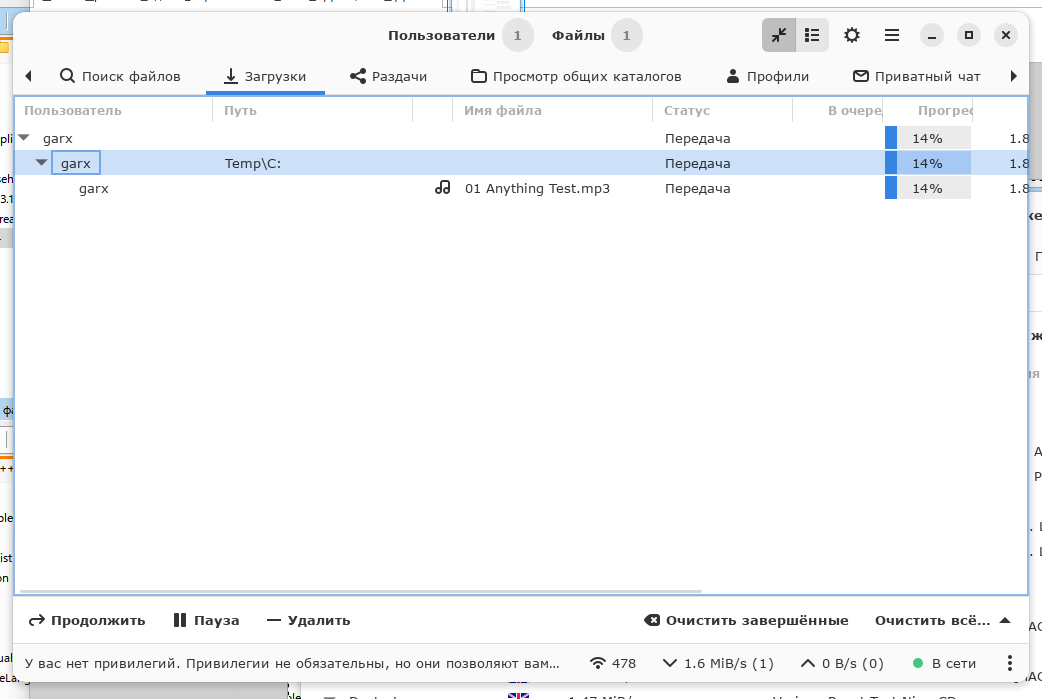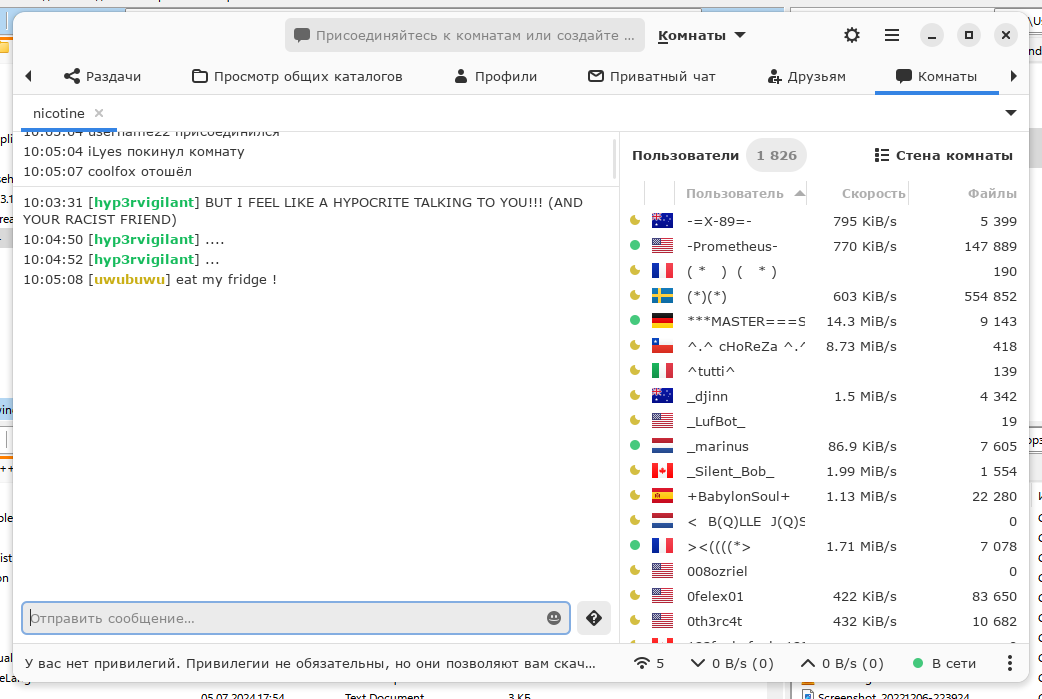Old-timers probably remember things like eMule, DC++, and other peer-to-peer file-sharing networks. Meanwhile, they still exist and even continue to evolve.
Old-timers probably remember things like eMule, DC++, and other peer-to-peer file-sharing networks. Meanwhile, they still exist and even continue to evolve.
An example of such a network is Soulseek, where you can share your files, download files from other users, and chat privately or in public rooms. In short, it's just like the good old days.

But today's article is not about the network itself, but about an alternative client for it — Nicotine+.



In terms of features, both clients are virtually the same. All important differences are in the details. First, Soulseek worked flawlessly on my macOS Sonoma, unlike Nicotine+.

Yes, I know the issue can be resolved, but it's still extra hassle for the user.
Apart from that, Nicotine+ only has advantages. This client is written in Python (not QT) with GTK for the graphical interface, which makes it lighter and more visually appealing. It also has open-source code and supports of other languages than English, making it much easier for beginners to navigate and configure.
